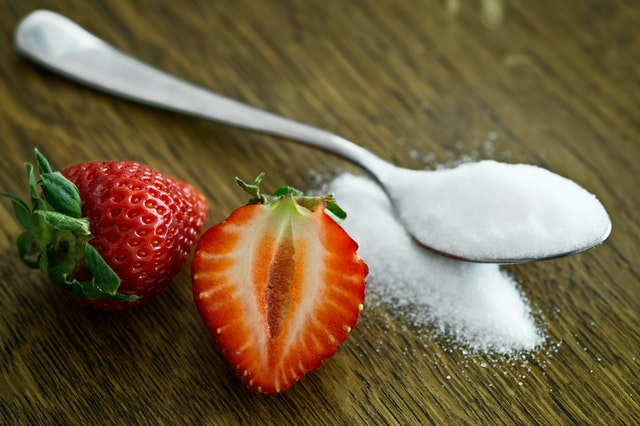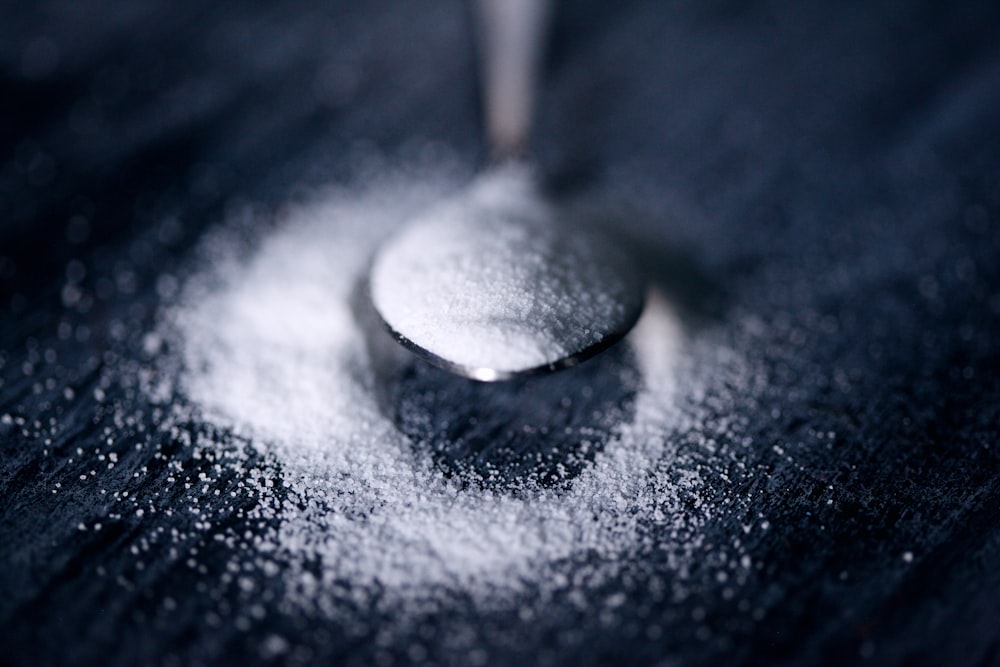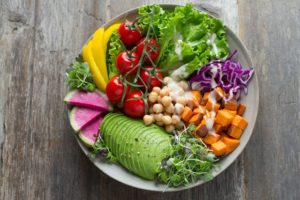
Food labels contain tons of information that is super-helpful for those of us with gut issues. Once you know what to look out for, you can avoid buying foods that are likely to cause problems.
The front of the pack is the marketing side – designed to highlight the information the manufacturer wants us to see and to persuade us to buy.
The back of the pack
is where the FULL TRUTH lies.
ZENITH METHOD ELEMENTS: RESTORE
This is where, by law, food companies have to list all the ingredients and nutritional information – ‘warts and all’.
So, turning a food product over and scrutinizing the small print is a great habit to get into if you have gut issues.
Aggravating additives

Many of us with gut issues avoid wheat-based products and some dairy because they can cause gut issues. However, many of the products that we replace them with – plant milks, sugar-free and gluten-free products – are often heavily processed and contain gums, stabilizers and sweeteners that can aggravate our symptoms just as badly as wheat and dairy!
The most common aggravating additives to look out for are:
- Gums
- Xanthan gum
- Cellulose gum
- Locust bean (carob) gum
- Guar gum
- Sweeteners
- Mannitol
- Sorbitol
- Isomalt
- Maltitol
- Lacitol
- Xylitol
- Inulin
But why do these additives cause problems?
Gums…
Additives such as guar gum, locust-bean gum, cellulose gum and xanthan gum are used in gluten-free bakery products and non-dairy milks to bind, thicken and stabilize.
All these gums are forms of soluble fibre, which means – you’ve guessed it – they are FODMAPs.
Yup – this is why they can cause problems.
They tend to be used in small amounts in foods and not everyone with gut issues will have a problem. So just check the label so you know what you’re eating and monitor how you feel afterwards.
If your symptoms play up, then the gum could be a problem for you.
As you will have worked out by now, with gut issues, it’s about trial and error – and gradually working out what works and what doesn’t.
Inulin

Inulin is a prebiotic fibre, often sourced from chicory root (often called ‘chicory fibre’), that has amazing health benefits if you either don’t have gut problems and in some cases where your gut issues are more large-intestine based.
For many of us with small-intestinal bacterial overgrowth (SIBO) it can be a disaster!
The reason for this is that it is a type of fructan – the ‘F’ in ‘FODMAP’ (FODMAPs are a group of soluble fibre molecules that can be very problematic for people with gut issues. FODMAP stands for: fructans, olgosaccharides, disaccharides, monosaccharides and polyols).
For a primer on FODMAPs, check out this post from the awesome researchers at Monash University who coined the acronym ‘FODMAP’ and were the first to take a really deep dive into the types of soluble fibre that are so problematic for SIBO sufferers.
Inulin is found in many processed foods, including chocolate, cereals, energy bars, protein supplements, some biscuits and cookies and some ice cream.
As with gums, if something you fancy contains inulin, try it and see what happens. You’ll soon know if it is a problem for you!
Sweeteners

There have been various studies showing that avoiding nasty old sweeteners like sucralose, Ace-K and saccharin is a good idea. Dr Axe has a great article on this here.
There are newer sweeteners around. Are they any better? Nope, not if you have gut problems. Here are the worst offenders:
- Sorbitol (E420/420)
- Mannitol (E421/421)
- Isomalt (E953/953)
- Maltitol (E965/965)
- Lactitol (E966/966)
- Xylitol (E967/967)
But these are all polyols (the ‘P’) in FODMAP and cause gas, bloating and diarrhoea in people with healthy digestion – let alone those of us with gut problems.
By law, any food containing any of these substances has to include the following disclaimer on the label:
Excessive consumption may cause a laxative effect.
UK Food and Labelling law
Ew.
Needless to say, best to avoid…
Erythritol – the exception!

Erythritol is also a polyol, but for various reasons is actually a great option for people with digestive problems and/or diabetes.
Why?
- Around 90% of it is absorbed from the upper gut into the bloodstream and excreted unchanged in the urine
- It doesn’t attract water into the intestines [other polyols do this – thus causing diarrhoea]
- Erythritol is not fermented by gut bacteria
- It is slightly less sweet than sugar, which means it can be swapped into recipes [like cakes] more easily with minimal change to the quality and texture of the final product.
- It is completely calorie-free (yes, really!).
- It’s relatively inexpensive and can be bought in bulk from various suppliers, many of whom trade on ebay and Amazon.
Personally, I cook with a commercial brand of erythritol and stevia. My favourite is this one:

So, what’s the take home, here?
Check the ingredients list!
Avoid anything ending in ‘ol (except erythritol)
Avoid foods containing gums and/or inulin

